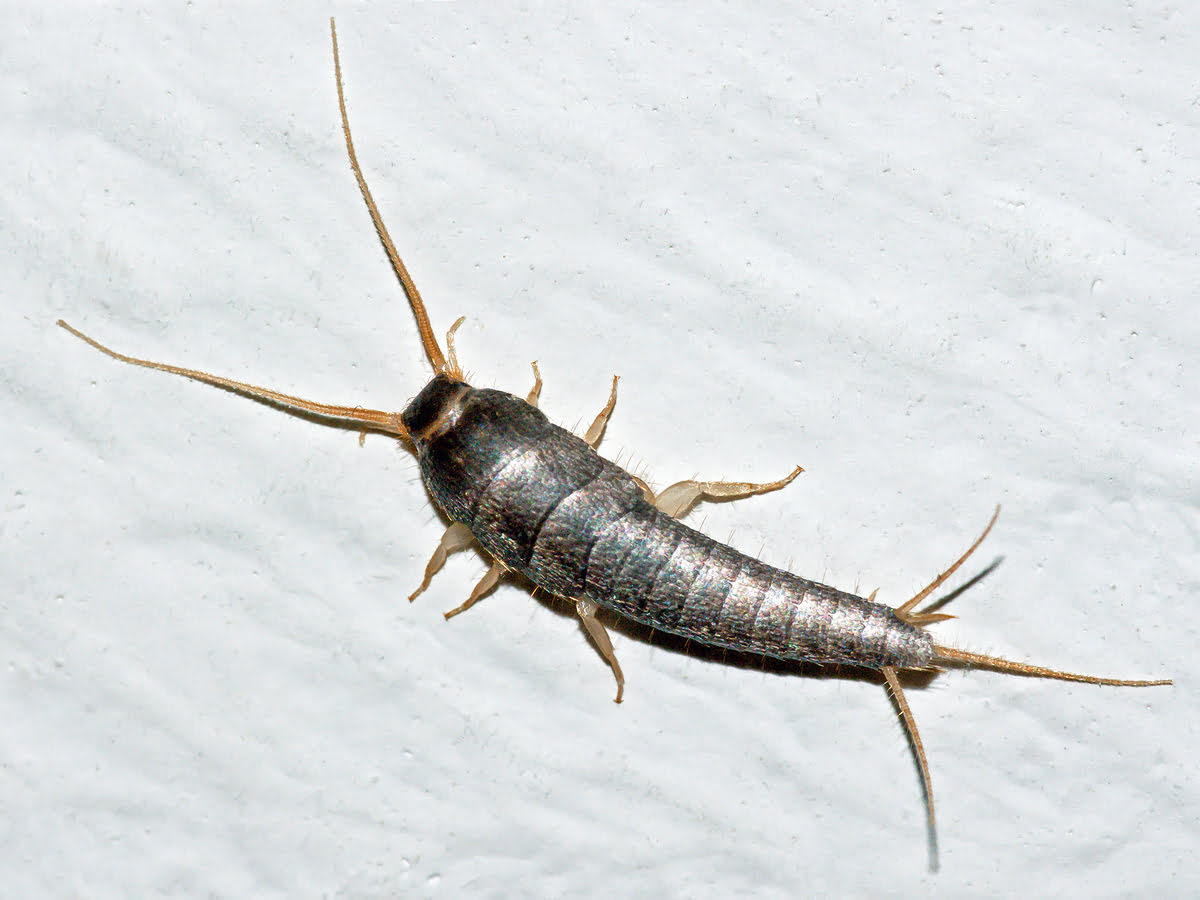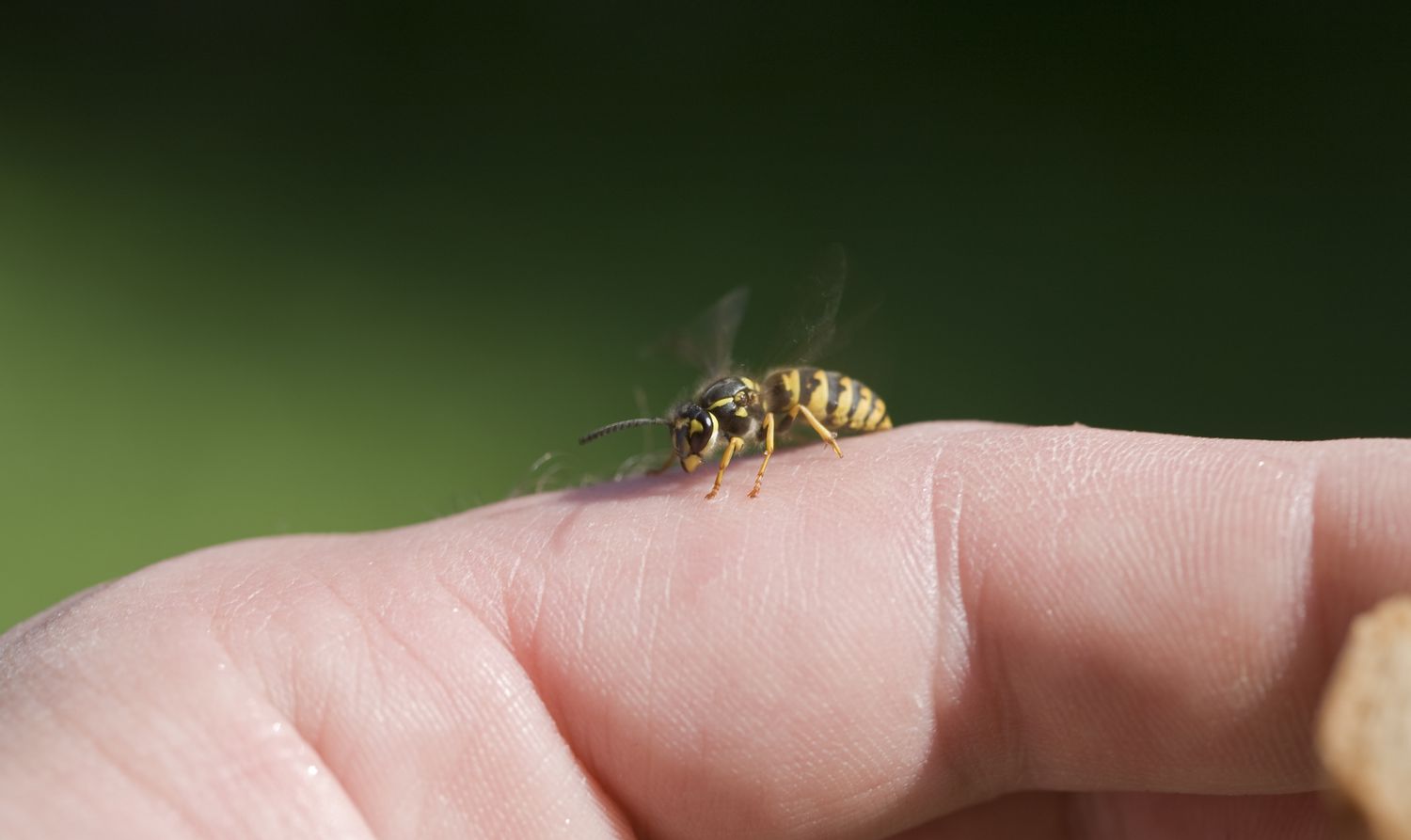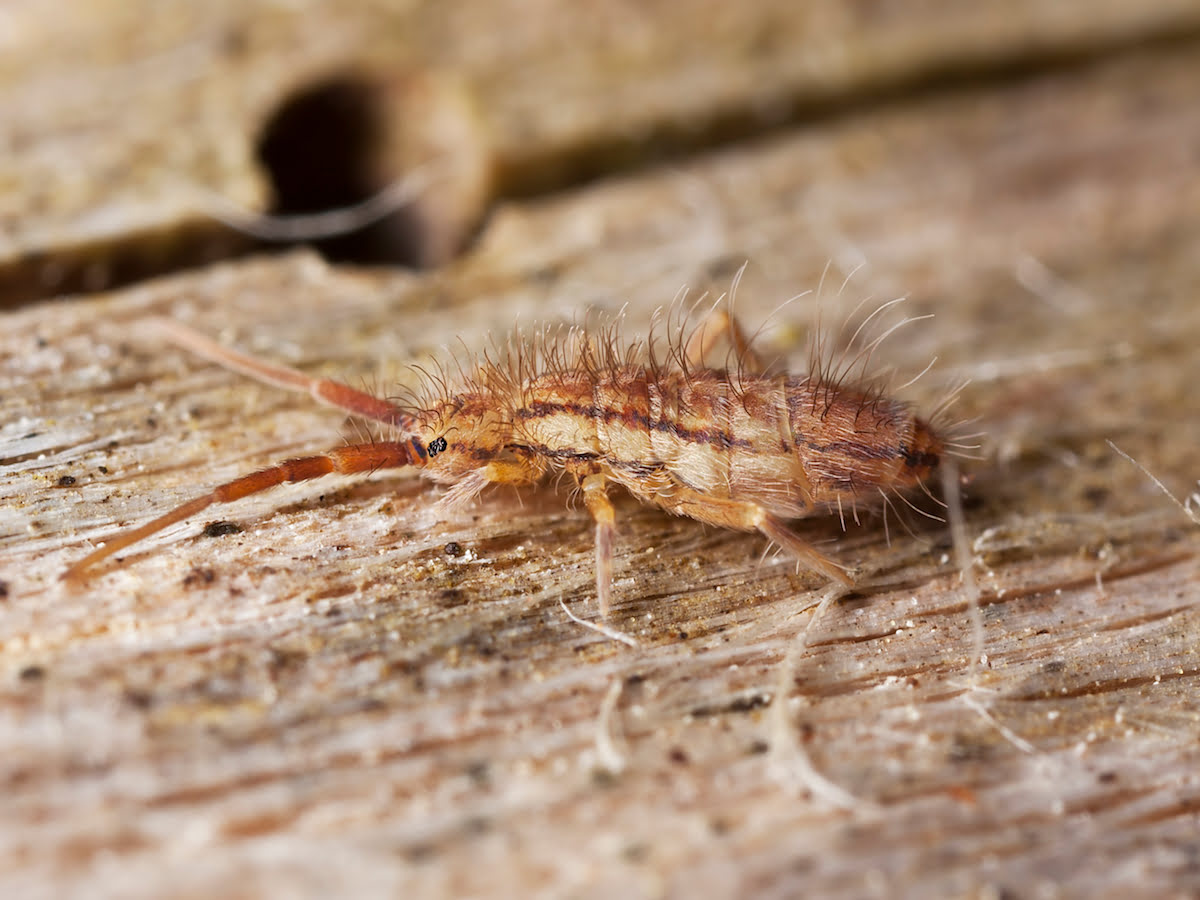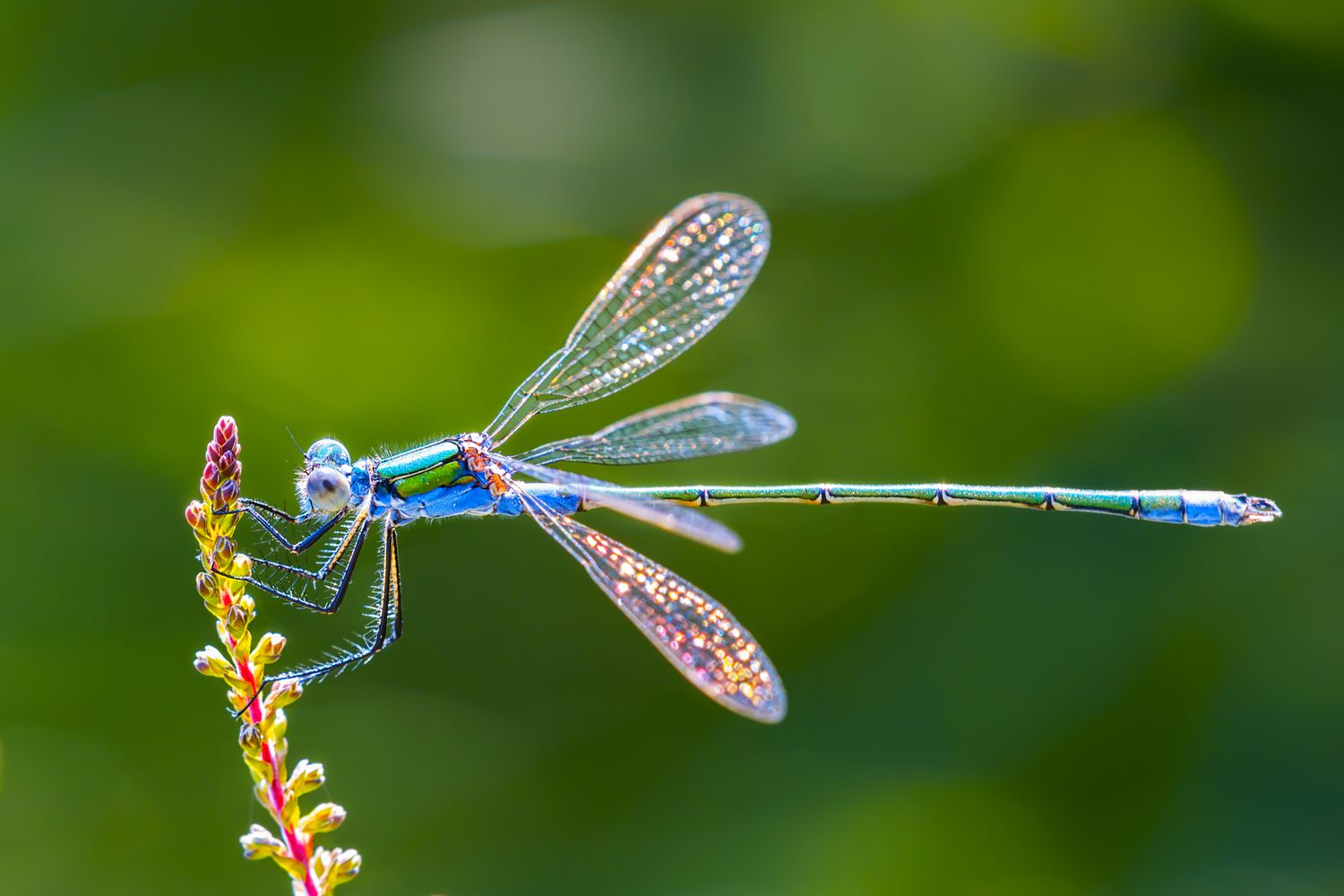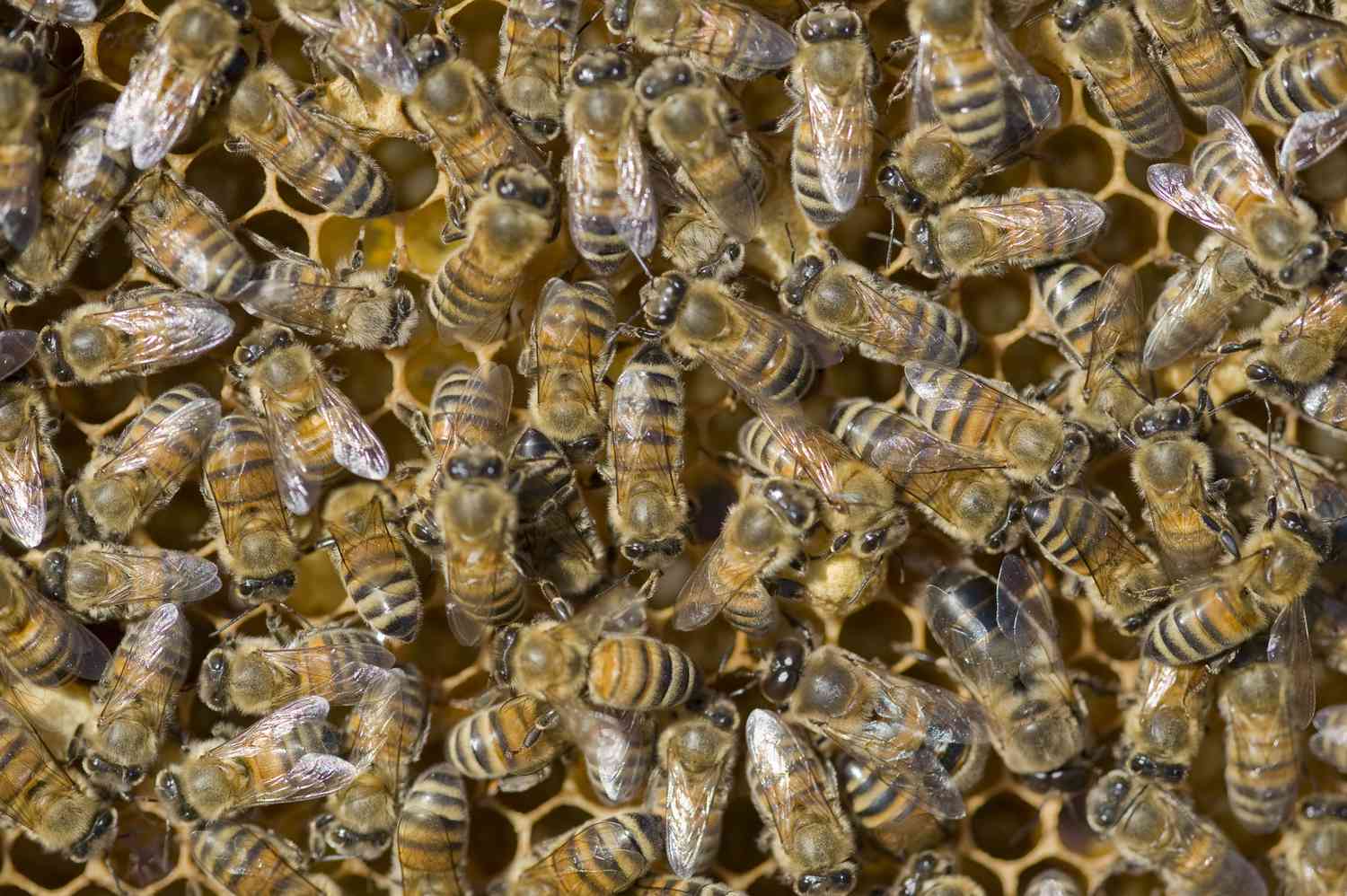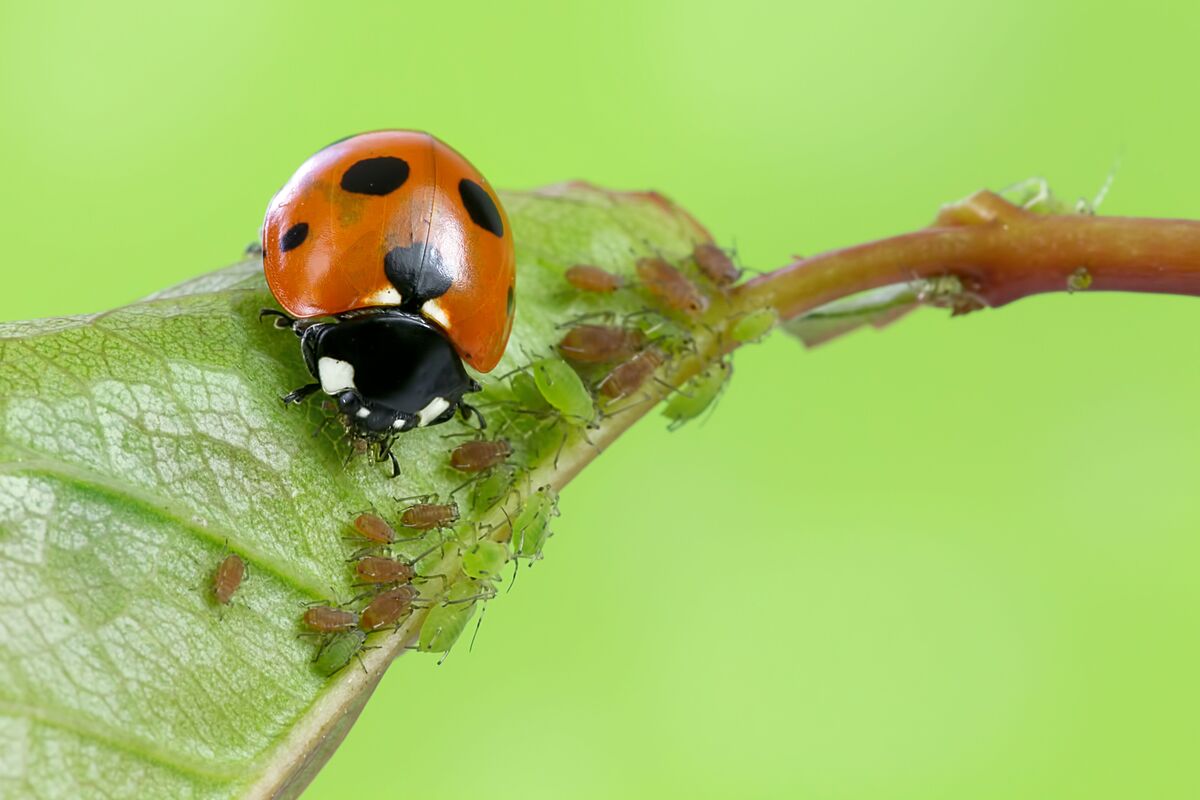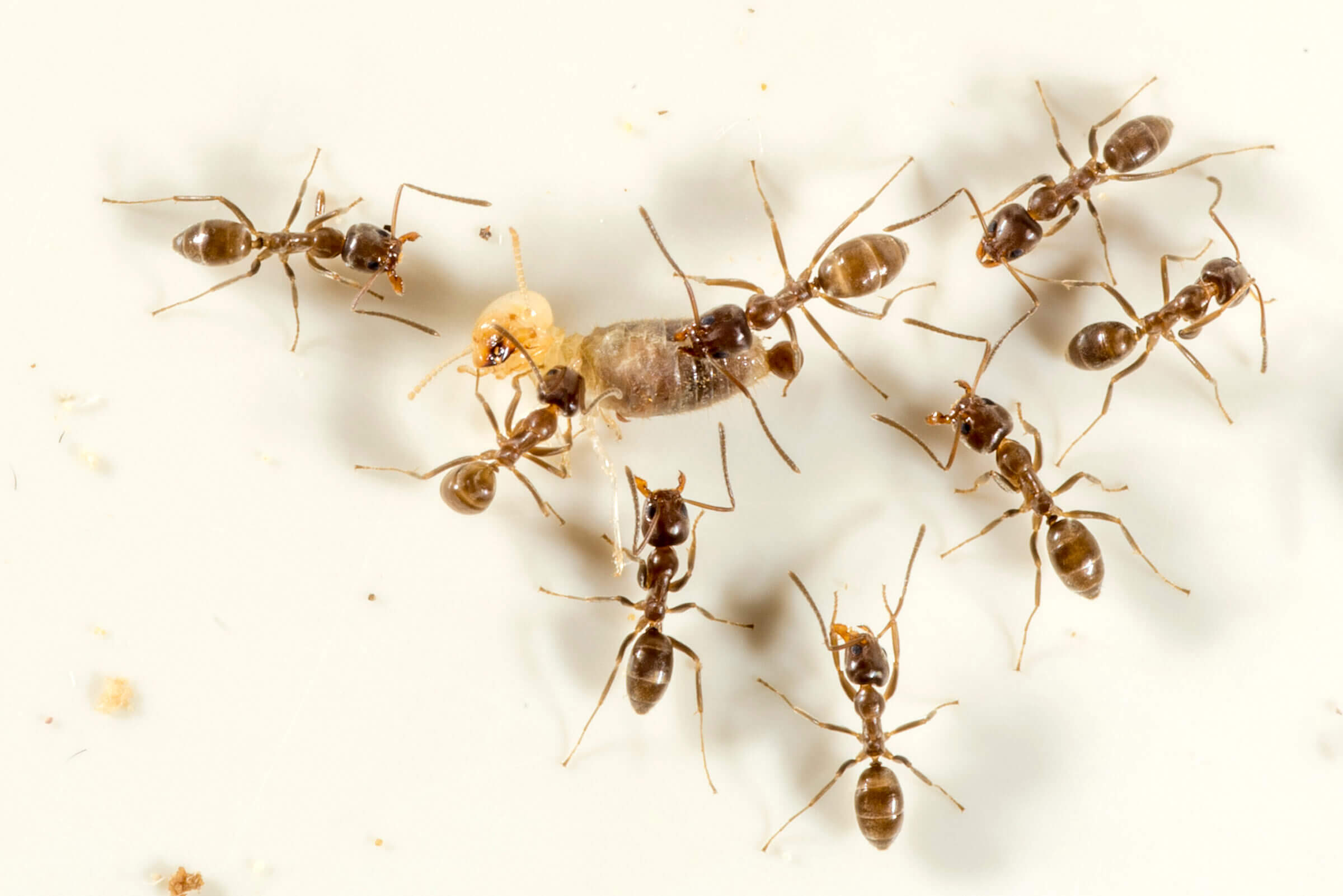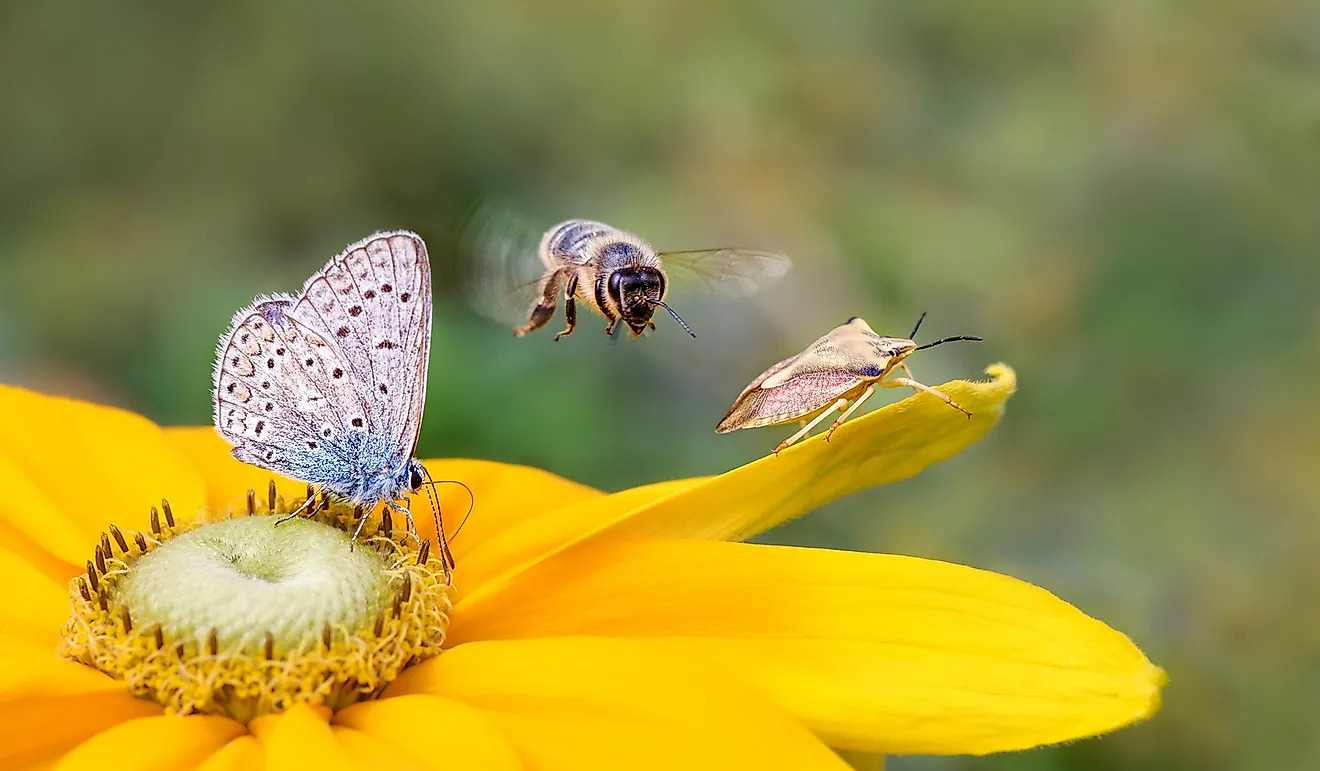Home>Gardening News and Trends>Latest News>What Insects Are Decomposers
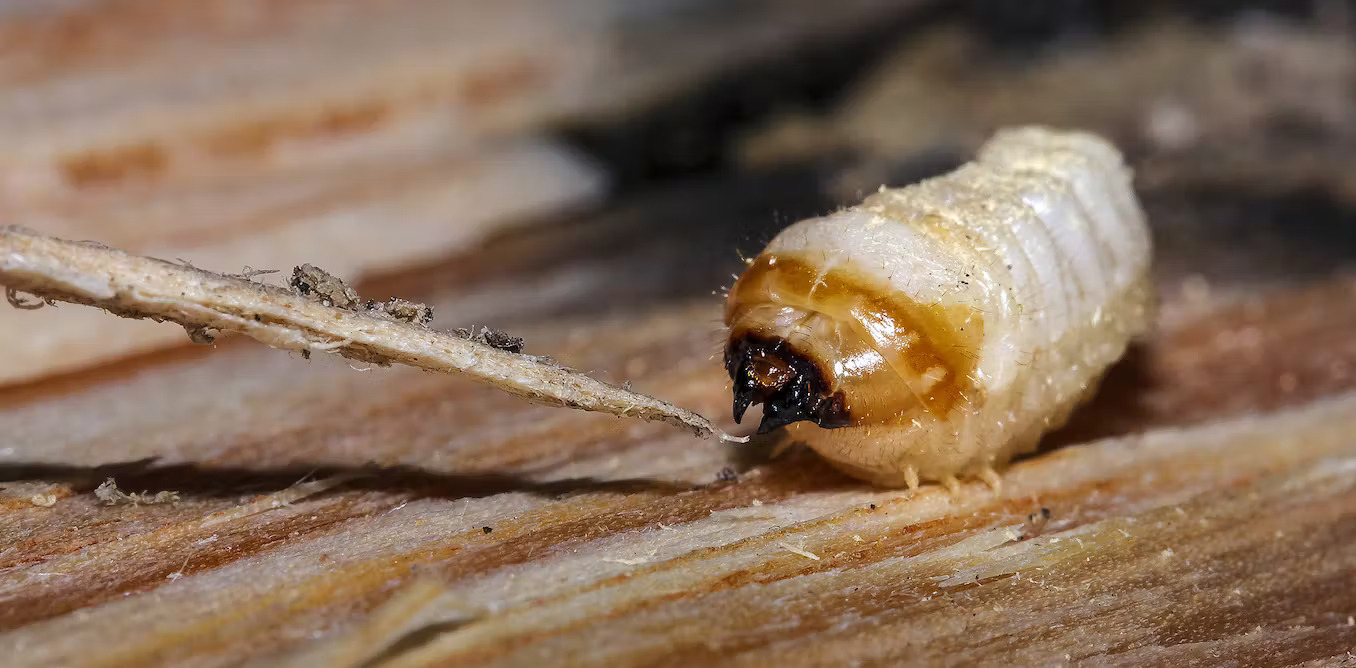

Latest News
What Insects Are Decomposers
Modified: January 22, 2024
Discover the latest news on what insects act as decomposers and play a crucial role in breaking down organic matter. Stay informed and understand their significance in ecological cycles.
(Many of the links in this article redirect to a specific reviewed product. Your purchase of these products through affiliate links helps to generate commission for Chicagolandgardening.com, at no extra cost. Learn more)
Table of Contents
Introduction
In every ecosystem, there is a vital group of organisms that play a crucial role in breaking down organic matter and recycling nutrients. These organisms are known as decomposers. They are responsible for the decomposition and decay of dead plants and animals, turning them into simple compounds that can be reused by other living organisms.
Decomposers are considered nature’s recyclers, as they help maintain the balance of nutrients in the environment. While microorganisms like bacteria and fungi are commonly recognized as decomposers, there is another group of organisms that often goes unnoticed for their vital role in this process – insects.
Insects are prolific creatures, representing the largest group of animals on Earth. They are found in nearly every terrestrial habitat, from rainforests to deserts. While many insects are known for their pollination or predatory roles, a significant number of species also contribute to the decomposition of organic matter.
In this article, we will delve into the world of insect decomposers, exploring their importance in ecosystems and the different types of insects that serve as decomposers. By understanding the role and significance of these often-overlooked creatures, we gain a deeper appreciation for the intricate web of life and the essential services provided by insects as nature’s recyclers.
What Are Decomposers?
Decomposers are a key component of the ecological cycle, responsible for breaking down dead organic matter and recycling nutrients back into the environment. They play a critical role in maintaining the balance of ecosystems by preventing the accumulation of decaying material.
When plants and animals die, their bodies undergo a process called decomposition. Decomposers, including microorganisms like bacteria and fungi, as well as larger organisms like insects and worms, break down the complex organic compounds in dead plants and animals into simpler substances such as carbon dioxide, water, and inorganic nutrients.
These organic compounds are then returned to the soil, water, or air, where they can be taken up by plants and other organisms and used for growth and reproduction. Without decomposers, the nutrients locked in dead organisms would remain inaccessible, leading to resource depletion and the breakdown of ecosystem function.
Decomposers are nature’s recyclers, contributing to the continuous flow of nutrients through the food web. As they break down organic matter, they release energy that can be used by other organisms, creating a cascading effect that sustains life in the ecosystem.
Furthermore, decomposers also help in the process of nutrient cycling. They break down complex organic compounds, such as proteins and carbohydrates, into simpler forms that can be readily absorbed by plants and other organisms. This ensures the availability of essential elements like nitrogen, phosphorus, and potassium for the growth and development of living organisms.
It’s important to note that decomposers are different from detritivores. While decomposers primarily break down dead organic matter chemically, detritivores are organisms that consume this decaying material directly. Many insects, such as maggots and certain beetle larvae, are detritivores, but they can also play a role as decomposers by breaking down organic matter through their feeding activities.
Overall, decomposers are crucial in maintaining the balance and health of ecosystems. By efficiently breaking down dead organic matter, they ensure the recycling of nutrients, energy flow, and the sustainability of life in the natural world.
Role of Decomposers in Ecosystems
Decomposers play a vital role in ecosystems by facilitating the decay and recycling of organic matter. They are the key players in the process of decomposition, which is essential for the functioning and sustainability of ecosystems.
One of the main roles of decomposers is to break down dead plants and animals, returning their organic matter to the environment. As decomposers chemically break down complex organic compounds into simpler forms, they release nutrients such as nitrogen, phosphorus, and carbon, making them available for other living organisms.
Without decomposers, the accumulation of dead organic matter would lead to the depletion of nutrients in the ecosystem. Decomposers ensure that the raw materials locked in dead organisms are returned to the food web, allowing new life to flourish.
In addition to nutrient recycling, decomposers also help in the decomposition of toxins and organic pollutants. Certain microorganisms have the ability to break down harmful compounds like pesticides, herbicides, and industrial pollutants, detoxifying the environment and reducing the negative impact on organisms.
Decomposers also contribute to the regulation of carbon dioxide levels in the atmosphere. Through the process of decomposition, carbon dioxide is released back into the air. This plays a crucial role in the global carbon cycle, helping to maintain the balance of greenhouse gases and mitigate climate change.
Furthermore, decomposers provide an important food source for other organisms in the ecosystem. Many detritivores, such as millipedes, earthworms, and certain insects, feed on decaying organic matter. These detritivores then become food for predators, contributing to the flow of energy through the food web.
Moreover, decomposers assist in shaping the physical structure of the environment. For example, burrowing insects like dung beetles and earthworms aerate the soil, improving its structure and nutrient content. This enhances the growth of plants and facilitates the infiltration of water.
Overall, decomposers play a crucial role in nutrient cycling, detoxification, carbon balance, and the structure of ecosystems. Their activities are fundamental to the functioning and health of natural systems, ensuring the sustainability and resilience of the environment.
Insects as Decomposers
In addition to microorganisms like bacteria and fungi, insects are a significant group of organisms that contribute to the process of decomposition. Many insects play a crucial role as decomposers, actively breaking down dead organic matter in various ecosystems.
As decomposers, insects play a unique and important role in the decomposition process. They have specialized adaptations that allow them to efficiently break down and consume decaying material. Insects have mouthparts and digestive systems that enable them to feed on dead plant and animal material, facilitating the breakdown of organic compounds.
One of the key ways that insects contribute to decomposition is through their feeding activities. Many insects, such as beetles, flies, and ants, feed on decaying matter directly. They consume dead plants, fruits, carcasses, and other organic debris, breaking them down into smaller particles and facilitating their decomposition.
Furthermore, insects often have symbiotic relationships with microorganisms that aid in the decomposition process. Insects such as termites and some beetles have specialized gut bacteria or protozoa that help break down complex compounds like cellulose, allowing them to digest plant material efficiently.
In addition to their direct contributions as decomposers, insects also play a role in the dispersal of microorganisms involved in decomposition. They can transfer microorganisms from one substrate to another as they move and feed, aiding in the colonization of decomposing material by bacteria and fungi.
It’s worth noting that not all insects contribute to decomposition in the same way. Some insects, like carrion beetles, focus on breaking down animal carcasses, while others, such as dung beetles, specialize in processing animal waste. Each insect group has evolved specific adaptations to efficiently break down and process the particular substrate they feed on.
Insects as decomposers are not only important for nutrient recycling but also play a role in the overall health and balance of ecosystems. By consuming and breaking down dead organic matter, insects reduce the volume of decaying material and help maintain a cleaner and healthier environment.
Overall, insects are key contributors to the decomposition process, playing a significant role in breaking down dead organic matter, facilitating nutrient cycling, and contributing to the overall functioning and sustainability of ecosystems.
Types of Insects That Are Decomposers
There is a wide variety of insect species that contribute to the decomposition process in different ecosystems. These insects have specialized adaptations that allow them to efficiently break down and consume dead organic matter. Let’s take a look at some of the common types of insects that are decomposers:
- Beetles: Beetles are one of the most diverse groups of insects and include many decomposer species. Carrion beetles, for example, are known for their ability to break down animal carcasses. They help remove decaying remains from the environment, preventing the buildup of pathogens and foul odors.
- Flies: Flies, particularly those in the family Calliphoridae, commonly known as blowflies, are important decomposers. They lay their eggs on decaying organic matter, such as animal carcasses or rotting fruits, and their larvae, known as maggots, feed on the decomposing material.
- Ants: Certain ant species also play a role as decomposers. They are attracted to sugary secretions from sap-sucking insects or the exudates produced by plant wounds. As they forage for these resources, they inadvertently assist in the decomposition process by breaking down plant material and aiding in the dispersal of microorganisms.
- Dung Beetles: Dung beetles are specially adapted to feed on animal waste. They help in the decomposition of feces by burying it underground or rolling it into balls. This process not only helps break down the waste but also assists in nutrient cycling and soil enrichment.
- Termites: Termites are well-known decomposers, particularly in tropical ecosystems. Certain termite species have specialized gut bacteria that allow them to break down and digest cellulose, a complex compound found in plant material.
These are just a few examples of the diverse range of insects that contribute to the decomposition process. Each insect species has its unique role and ecological niche, making them important players in maintaining the ecological balance and health of ecosystems.
It’s worth noting that some insects can also act as both decomposers and detritivores. They consume detritus directly, contributing to the breakdown of organic matter, while also playing a role in nutrient cycling and ecosystem functioning.
Overall, the different types of insects that serve as decomposers demonstrate the incredible adaptability and diversity within the insect world. Their specialized feeding habits and adaptations enable them to effectively break down dead organic matter and contribute to the recycling of nutrients in ecosystems.
Examples of Insects That Are Decomposers
Across different ecosystems, numerous insect species play a crucial role as decomposers, aiding in the breakdown and recycling of dead organic matter. Here are a few examples of insects that are important decomposers in various environments:
- Carrion Beetles: Carrion beetles, also known as burying beetles, are often found near decaying animal carcasses. These insects feed on the decomposing flesh and help break down the organic matter. They play a vital ecological role by accelerating decomposition, reducing potential disease transmission, and recycling nutrients back into the environment.
- Blowflies: Blowflies, part of the family Calliphoridae, are notorious for their association with decaying matter. These flies lay their eggs on animal carcasses, and the larvae, commonly known as maggots, consume the decaying tissue. Their feeding activities help break down the carcass and facilitate the decomposition process.
- Dung Beetles: Dung beetles are specialized insects that play a critical role in decomposing animal waste. These beetles collect and roll dung into balls, which they bury underground. By doing so, they not only aid in the decomposition of the waste but also contribute to soil enrichment and nutrient cycling.
- Ants: Certain ant species, such as the wood ants (Formica spp.), contribute to decomposition by acting as scavengers. They scavenge on dead insects, fallen fruits, and decaying plant material, aiding in the breakdown of organic matter and helping recycle nutrients back into the ecosystem.
- Termites: Termites are well-known decomposers, particularly in tropical ecosystems. Some termites, known as subterranean termites, feed on dead plant material, including wood. Termites have specialized gut bacteria and protozoa that assist them in breaking down the tough and complex compounds found in cellulose, allowing them to efficiently decompose plant material.
These examples represent just a fraction of the diverse range of insects that serve as decomposers in different habitats. Each insect species has unique adaptations that enable them to thrive in specific ecological niches and contribute to the decomposition process in their own way.
It’s important to recognize the ecological significance of these insects as decomposers. They play a vital role in nutrient cycling, disease control, and maintaining the overall health and equilibrium of ecosystems. Without the activity of these decomposer insects, the environment would face challenges with the accumulation of decaying matter and the depletion of essential nutrients.
By understanding and appreciating the critical role of insects in the decomposition process, we gain a deeper appreciation for the hidden heroes of nature’s recycling systems and the intricate web of life they contribute to.
Importance of Insects as Decomposers
Insects play a crucial role as decomposers in ecosystems, providing numerous ecological and environmental benefits. Their contribution to the decomposition process is of great importance and has wide-ranging implications. Here are some key reasons why insects are essential as decomposers:
- Nutrient Recycling: Insects help break down dead organic matter, releasing essential nutrients back into the environment. By decomposing plant and animal material, insects contribute to the recycling of nutrients, ensuring their availability for other organisms. This nutrient cycling is crucial for maintaining the health and productivity of ecosystems.
- Waste Disposal: Insects, such as carrion beetles and blowflies, are masters of waste disposal. They rapidly consume decaying organic matter, including animal carcasses and fallen fruits, reducing the abundance of potential disease vectors and foul odors. Their efficient feeding activities help clean up the environment, promoting a healthier ecosystem.
- Energy Transfer: As decomposers feed on dead organic matter, they release energy that can be utilized by other organisms in the ecosystem. Insects, through their role as decomposers, facilitate the transfer of energy from dead plants and animals to the living organisms in the food web. This energy flow is critical for sustaining life and maintaining the balance of the ecosystem.
- Soil Enrichment: Certain decomposer insects, like dung beetles and termites, contribute to soil enrichment. They enhance soil structure, increase nutrient content, and improve water infiltration. By burying organic matter or breaking it down into smaller particles, these insects promote healthy soil conditions for plant growth and support overall ecosystem health.
- Carbon Balance: Insects as decomposers play a significant role in the global carbon cycle. Through the decomposition process, carbon stored in dead organic matter is released back into the atmosphere as carbon dioxide. This carbon balance helps regulate greenhouse gas concentrations, mitigating the impacts of climate change.
- Pollution Control: Insects, in their role as decomposers, can assist in the breakdown of organic pollutants and toxins. Certain species have the ability to metabolize and detoxify harmful compounds such as pesticides and industrial pollutants. This helps mitigate the negative environmental impact of these toxins and contributes to a cleaner and healthier ecosystem.
Overall, insects play a vital role as decomposers, influencing nutrient cycling, waste management, energy transfer, soil health, carbon balance, and pollution control within ecosystems. Their contributions have far-reaching implications for the functioning and sustainability of the natural world.
Understanding and protecting the vital role of insects as decomposers is crucial for preserving the delicate balance of ecosystems and promoting the well-being of our planet. Efforts to conserve insect populations and their habitats are essential for maintaining the invaluable services provided by these often unsung heroes of nature’s recycling systems.
Conclusion
Insects are incredible organisms that play a vital role as decomposers in ecosystems. Through their feeding activities and specialized adaptations, they contribute to the breakdown and recycling of dead organic matter, ensuring the efficient cycling of nutrients and the overall health of the environment.
From beetles and flies to ants, termites, and dung beetles, insects exhibit a remarkable diversity of species that fulfill essential roles as decomposers. Their ability to break down and consume decaying material not only facilitates waste disposal but also promotes nutrient recycling, energy transfer, soil enrichment, carbon balance, and pollution control.
By actively participating in the decomposition process, insects help maintain the balance and resilience of ecosystems. They prevent the excessive accumulation of decaying material, reduce the spread of disease, promote healthy soil conditions, regulate carbon dioxide levels, and contribute to the overall functionality and sustainability of the natural world.
Recognizing and appreciating the significance of insects as decomposers is crucial for understanding the intricate web of life and the interdependence of species within ecosystems. To protect and preserve these invaluable insects, conservation efforts must focus on safeguarding their habitats, minimizing the use of harmful pesticides, and promoting sustainable practices that maintain a healthy environment for them to thrive.
In conclusion, the role of insects as decomposers cannot be overstated. They are the unsung heroes that engage in the vital work of breaking down and recycling organic matter, ensuring the continuity of life and maintaining the delicate balance of our planet’s ecosystems. Embracing the importance of insects as decomposers is a fundamental step towards fostering a greater appreciation for the natural world and working towards its long-term preservation.
